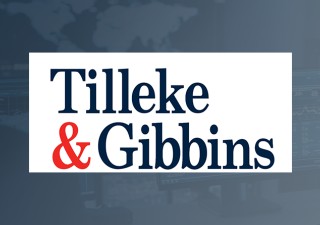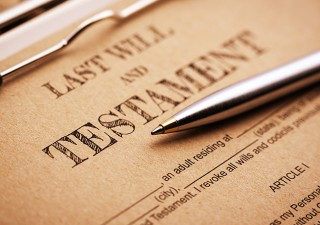Vietnam patent case involving foreign expert opinion, statutory compensation gets milestone verdict
30 November 2019

On July 17, 2019, the People’s Court of Binh Duong Province handed down its verdict for a patent infringement case involving a European pharmaceutical firm and a leading local generic drug manufacturer.
It turned out to be one of the most significant and notable verdicts to come out of Vietnamese courts.
The infringed patent was for a chemical substance identifiable by no other means but x-ray diffraction. Unfortunately, there was no equipment or facility in Vietnam that could undertake the process, so a sample of the product believed to have infringed the patent was sent abroad for identification. A report of the x-ray diffraction results and analysis was sent to the Vietnam Intellectual Property Research Institute. The agency issued an expert opinion based on the analysis conducted abroad. In making its own report, VIPRI did refer to and rely on the foreign expert opinion. It confirmed that the product analyzed was indeed identical to the chemical substance protected by the patent. Therefore, this patent was indeed infringed upon.
One of the elements of this case which makes it significant is the fact that the defendant asked the court to reject the foreign expert opinion.
“The defendant can ask the court to deny the foreign expert opinion if he has good reason to believe that the expert is not objective or not qualified for expert opinion,” says Viet Hung Le, a patent attorney at Baker McKenzie in Hanoi.
The court, however, denied this request, thus accepting the foreign expert opinion and rendering it legally valid.
In an article titled Court Issues Trailblazing Verdict in Vietnam Patent Case, posted on the Tilleke & Gibbins website, Loc Xuan Le, a principal in the firm’s Hanoi office, writes: “Of all the patent cases resolved in Vietnam so far, it seems this is the first time the legal validity of a foreign expert opinion has been raised.”
According to Yen Vu, executive and country manager of Rouse Legal Vietnam in Hanoi, requests for judicial assessment by foreign experts can be made in limited circumstances. These include instances when the objects to be examined are located overseas and if the domestic accredited organizations tasked to carry out judicial assessment do not have the required expertise or facilities.
“Vietnamese laws do not clearly set forth the qualifications of experts,” says Viet Hung Le. “The courts will consider their qualifications on a case-by-case basis.”
It should be noted, however, that expert opinions on IP issues including patent infringement disputes have critical, sometimes decisive, roles in court proceedings, according to Vu.
“There is no specialized IP court in Vietnam and judges generally do not have sufficient experience in handling IP matters, especially patent matters. Expert opinions, both domestic and overseas, are important to assist the courts in deciding IP cases,” she says.
Nevertheless, all three lawyers believe that the inclusion of foreign expert opinion in this particular case will set a precedent in Vietnam.
“Although Vietnam is not a common law country, the Supreme Court in Vietnam is taking initiatives to guide courts nationwide to apply the law consistently by requesting them to follow important court decisions selected by the Supreme Court each year in a particular area. It is still too soon to say this particular decision is final or will be included in the Supreme Court’s verdicts collection because it is likely the defendant will appeal,” says Vu. “However, it is certainly possible for patent owners to request a court or an enforcement authority to refer to this judgment in future cases.”
Before the trial began, the defendant filed a patent cancellation request. During the trial, the defendant asked the court to suspend the case until the patent cancellation request was resolved, which could take several years. Again, this move was rejected.
According to Vu, the defendant’s argument is based on a legal ground provided for under the 2015 Civil Procedure Code. “This is a known tactic used by infringers or defendants to delay enforcement proceedings,” says Vu. “The court’s decision in this case therefore is highly welcome.”
However, she adds that varying interpretations of the Civil Procedure Code have led to inconsistencies.
“Some courts suspend cases to wait for settlement of invalidation proceeding by IP Vietnam. In other cases, courts handle invalidation actions in the same civil infringement cases. Some courts still settle cases even the invalidation action is pending before IP Vietnam. Therefore, this is not the first case in which the court went ahead with a civil patent infringement case pending the invalidation action at IP Vietnam,” she explains.
For this case, the court referred to the 2015 Civil Procedure Code and the Law on Intellectual Property to decide whether or not to suspend it. It eventually decided to rely on the latter, being a more specialized law. The court stated that the Law on Intellectual Property does not contain provisions for a suspension of the case.
“This method of relying on the relation between the general law and the specialized law is truly a very new point in Vietnam,” Loc Xuan Le wrote.
Lastly, statutory compensation was granted.
“Vietnam’s IP laws provide principles for determining compensation for damages in both general provisions and specific provisions – which are sometimes completely at odds with each other,” Loc Xuan Le wrote. “For example, the general provisions on statutory compensation in tort under the current civil law state that the damages to be compensated must be, or are limited to, only actual damages, and they must be fully and promptly compensated (Article 585.1 of the 2015 Civil Code). However, the ‘statutory’ compensation prescribed in Article 205.1(c) of the Law on Intellectual Property permits the court to set an arbitrary compensation level of not more than D500 million (US$21,570) if damages cannot be quantified based on usual grounds, such as monetary damages incurred by the plaintiff, or the price of the assignment of IP rights if the defendant is an assignee.”
For Vu, the granting of statutory compensation is remarkable.
“Interpretation and application of the provision on statutory compensation under the IP law has been a controversial topic,” she says. “The court usually requests plaintiff to successfully prove their losses in order to grant damages. To our best knowledge, this is the first case in which statutory compensation was granted.”
Aside from setting a precedent in Vietnam and arming patent owners with a more effective way of enforcing their patent rights, Vu believes the milestone verdict will bring these additional benefits:
• Promote mutual collaboration and the sharing of best practices among patent enforcement authorities in the region and APAC countries;
• Bring Vietnam closer to the level of international best practices in resolving patent disputes; and
• Possibly increase patent filings into Vietnam.
Espie Angelica A. De Leon






